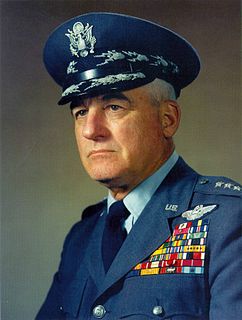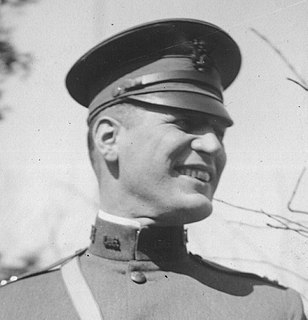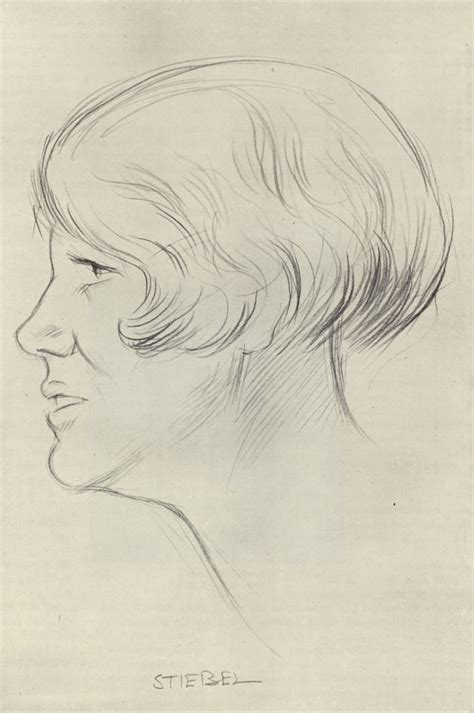Top 1200 Objects Of Desire Quotes & Sayings - Page 6
Explore popular Objects Of Desire quotes.
Last updated on December 12, 2024.
If we desire a society of peace, then we cannot achieve such a society through violence. If we desire a society without discrimination, then we must not discriminate against anyone in the process of building this society. If we desire a society that is democratic, then democracy must become a means as well as an end.
There is nothing more terrible, I learned, than having to face the objects of a dead man. Things are inert: that have meaning only in function of the life that makes use of them. When that life ends, the things change, even though they remain the same. […] they say something to us, standing there not as objects but as remnants of thought, of consciousness, emblems of the solitude in which a man comes to make decisions about himself.
Perception without the perceiver in meditation is to commune with the height and depth of the immense. This perception is entirely different from seeing an object without an observer, because in the perception of meditation there is no object and therefore no experience. can, however, take place when the eyes are open and one is surrounded by objects of every kind. But then these objects have no importance at all. One sees them but there is no process of recognition, which means there is no experiencing.
There is no desire that anyone holds for any other reason than that they believe they will feel better in the achievement of it. Whether it is a material object, a physical state of being, a relationship, a condition, or a circumstance - at the heart of every desire is the desire to feel good. And so, the standard of success in life is not the things or the money - the standard of success is absolutely the amount of joy you feel.
The phenomenon is something real and not visionary or fictitious. There are objects approximating the shape of a disc, some of which appear flat on bottom and domed on top. These objects are as large as man-made aircraft and have a metallic or light-reflecting surface. Further they exhibit extreme rates of climb and maneuverability with no associated sound and take action which must be considered evasive when contacted by aircraft and radar.
And yes, there definitely are many good desires. For example, without the desire for food we would not stay alive. It is when our desire becomes an unquenchable craving or obsession, or causes us to do harm to ourselves or others, that it creates suffering and unhappiness. If you have ever been hurt because you tied your happiness or well-being to a person, place, opinion, self-identity, behavior, or goal, then you have firsthand experience of desire.
THE FIRST STEP in changing the future is Desire, that is, define your objective - know definitely what you want. SECOND: construct an event which you believe you would encounter following the fulfillment of your desire - an event which implies fulfillment of your desire - something which will have the action of Self predominant.
We're pursuing a strategic partnership with Afghanistan on the case of the United States and Afghanistan where we're going to push toward a future. It is the future that the Afghans desire with the United States. It is a future that the Afghans desire with the international community and we desire that as well.
Law of Attraction abounds, and when it is said to you, 'Ask, and it is given,' there is no more powerful statement that is at the basis of what makes things happen than that. Now, how is it that you think you ask? With your words? The Universe doesn't hear your words. You ask with your desire. The desire that is born out of the contrast. That desire. That wanting. That's what summons the Life Force.
The identifying personal association with objects, which are not personal, is an important modern experience - our real association, the strands of our feelings about the objects that surround us. It's also because they are so familiar, we don't think of them as important in the world, but actually they are the world. We are living in a very material world.
The desire of excellence is the necessary attribute of those who excel. We work little for a thing unless we wish for it. But we cannot of ourselves estimate the degree of our success in what we strive for; that task is left to others. With the desire for excellence comes, therefore, the desire for approbation. And this distinguishes intellectual excellence from moral excellence; for the latter has no necessity of human tribunal; it is more inclined to shrink from the public than to invite the public to be its judge.
Some are motivated by a desire to mould the law to expand the rights of the downtrodden, while other may be motivated by a desire to maintain the Status Quo. Some may even be motivated by a desire to protect what they perceive to be their class interest. And such motives may not always even be conscious to the judges.
Innate sensuousness rarely has any desire for accuracy, no desire for precise information. It basks in sunshine, bathes in color, dwells in a sense of the impressive and the gorgeous, and rests there. Accuracy is not necessary except in the case of aggressive, acquisitive natures, when it manifests itself in a desire to seize. True controlling sensuousness cannot be manifested in the most active dispositions, nor again in the most accurate.
Thwarted, or starved, in the important objects proper to young capacities, the boys and young men naturally find or invent deviant objects for themselves. ... Their choices and inventions are rarely charming, usually stupid, and often disastrous; we cannot expect average kids to deviate with genius. But on the other hand, the young men who conform to the dominant society become for the most part apathetic, disappointed, cynical and wasted.
In a sense, Open City is a kind of Wunderkammer, one of those little rooms assembled with bric-a-brac by Renaissance scholars. I don't mean it as a term of praise: these cabinets of curiousities contained specific sorts of objects - maps, skulls (as memento mori), works of art, stuffed animals, natural history samples, and books - and Open City actually contains many of the same sort of objects. So, I don't think it's as simple as literary inclusiveness.
Very few persons, comparatively, know how to Desire with sufficient intensity. They do not know what it is to feel and manifest that intense, eager, longing, craving, insistent, demanding, ravenous Desire which is akin to the persistent, insistent, ardent, overwhelming desire of the drowning man for a breath of air; of the shipwrecked or desert-lost man for a drink of water; of the famished man for bread and meat.
The meditation I am talking about is not a meditation on something. If you light a lamp and remove all the objects surrounding it, the lamp will still go on giving light. In the same way, if you remove all objects from your consciousness, all thoughts, all imagination, what will happen? – only consciousness will remain.
Is it really that much better to make friends with animals before you kill them than to treat them as nameless, faceless objects before you kill them? From a yogic point of view, one must weigh the karmic consequences of perceiving others as mere objects to be used and the consequences of profiting from the suffering of others.
The objects you decide to keep, the ones that gave you the spark of joy? Treasure them from now on. When you put things away, you can actually audibly say, 'Hey, thank you for the good work today...' By doing so, it becomes easier for you to put the objects away and treasure them, which prolongs the spark of joy environment.
O what is it about having one's own Babe upon one's Hip that makes a Woman wish to go home to her Mother? A Desire to say: 'Look, the Circle is compleat'? A Desire to say: 'Look, I have cross'd the Divide and now am more like you'? A Desire to say: 'Look, this Babe I offer you is my most precious Gift'?
Part of the people here are interested in the same thing that Putin is interested in: Putin wants to have America as an enemy. Part of Americans want to have Russia as an enemy. It's advantageous. The other part of the people are just ordinary people. And these people project onto big objects the kind of relations that they have with small objects in their everyday lives.
The constitution of the United States is to receive a reasonable interpretation of its language, and its powers, keeping in view the objects and purposes, for which those powers were conferred. By a reasonable interpretation, we mean, that in case the words are susceptible of two different senses, the one strict, the other more enlarged, that should be adopted, which is most consonant with the apparent objects and intent of the Constitution.

























































